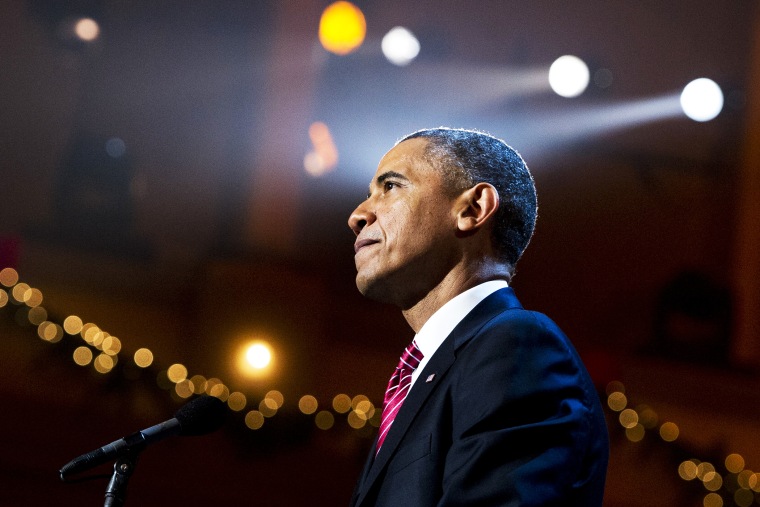When I worked as a federal prosecutor in Detroit, one of the maxims I was taught was to never, ever, take a case to trial in December. Juries, I was told, are just too merciful in the days before Christmas. I ignored this advice as a rookie, and learned to my chagrin that it was true.
That same pre-Christmas impulse to mercy manifested itself last week in a very different and important way, as President Obama used the clemency powers granted him by the Constitution to pardon 13 people and commute (shorten) the sentences of eight others. The sentence reductions were particularly significant, as this was the largest one-day grant of commutations in the normal course of business since the 1970s.
While Obama's clemency grants were important, principled, and well-chosen, they should be the start of his actions, not the end. The over-incarceration resulting from the War on Drugs has been so extensive, so racially disparate, and so inefficient at addressing any actual problem that the eight commutations issued last week barely made a mark. They represent the first lifeboat off a sinking ship. What remains to be done is to both send many more lifeboats and to fix the ship.
The president is certainly aware that the commutations he granted are a tiny fraction of federal cases with similar equities. Fairness and efficiency demand that the project of commutation be expanded. The president would do well to follow President Ford's example and establish a special, temporary board outside of the Department of Justice to expedite these cases. The president seems to recognize this exigency. In announcing his actions last week, he said "commuting the sentences of these eight Americans is an important step toward restoring fundamental ideals of justice and fairness. But it must not be the last.” He then urged Congress to reform the narcotics laws, but no one knows better than the president how frustrating it can be to wait for Congressional consensus. He should act under the pardon power, and send more lifeboats.
Fixing the ship is just as important, of course. As msnbc Managing Editor Dafna Linzer pointed out last week, what is remarkable about the recent commutations is not that they happened, but how much it took to make them happen. The system for evaluating clemency requests has not worked for the last several presidents. One cause of this failure is clear to close observers: the clemency review process is lodged firmly within the Department of Justice, both literally and figuratively, and DOJ is not well suited to the task.
It should not be surprising that trying to build a machine of mercy within a retribution factory has proven to be an abject failure. Obama needs to construct a review mechanism outside DOJ's building full of prosecutors. In so doing, he should consult Republican governors who ran efficient and productive clemency systems, such as Robert Ehrlich, the former Governor of Maryland whose law office is just two blocks away from the White House.
In looking to those twin challenges, the administration should be heartened by the public response to his action last week. The press has been uniformly positive. Under the surface, too, this show of mercy has been well-received. Because I work regularly on this issue, I heard from many people, of disparate political beliefs, and they all were supportive of what the president had done.
This shouldn't be surprising, as clemency for non-violent narcotics offenders is a rare thing-- a political act that fulfills the goals of conservatives, moderates, and progressives at the same time. Conservatives value efficiency in government, and there is a lot of waste in long prison terms for non-violent narcotic offenders. Moderates value incremental solutions, and this appears to be the approach the president is taking. Progressives, meanwhile, see the commutations as a step towards addressing the racial inequities of crack sentencing. They are all right to be pleased.
The symbolism of these Christmas commutations is powerful. To many Christians (and others), the central message of the holiday is one of hope. It celebrates a birth, a beginning. As with any good Christmas present, we can only hope that the president's impulse to free the captives will remain in sight and continue to engage us throughout the year.
Mark Osler, a former federal prosecutor, is a professor at the University of St. Thomas Law School in Minnesota.
